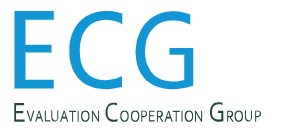Value chain approaches can be used to reach poor and very poor households - IOE
London, 15 March 2024 – “It is possible to reach poor and very poor households and groups through value chain approaches. However, this requires attention and consistent focus, including in terms of the entry barriers for poorer producers”, explained Fabrizio Felloni, Deputy Director of the Independent Office of Evaluation of IFAD (IOE), in a presentation during the first Evaluation Week of the European Bank for Reconstruction and Development (EBRD), on 11 March 2024.
The Evaluation Week took place at the EBRD headquarters, in London, from the 11th to the 15th of March 2024. Organized by EBRD’s independent Evaluation Department, the event brought together top-notch experts from evaluation, results management and research centres to share knowledge on the importance of collaboration among multilateral development banks (MDBs), including on key topics such as resilience, climate change and agribusiness. Participants shed light on the role of independent evaluation and results management in supporting internal as well as cross-institutional collaboration for greater impact on the ground. Dr Indran A. Naidoo, IOE Director, and Mr Felloni represented the office throughout the week.
The proceedings took place under the theme ‘collaboration within and across international financial institutions’, which focused on how evaluation can contribute to the pledge made by the MDBs at the 2023 Annual Meeting of the Bretton Woods institutions ‘strengthen collaboration for greater impact’.
Mr Felloni delivered his presentation on day one of the Evaluation Week, in the context of the session titled ‘Pro Poor Value Chains and Agribusiness’, which included over 90 participants in presence and online. The Deputy Director drew from the findings of the IOE corporate level evaluation of IFAD’s engagement in pro-poor value chain development. While the evaluation was carried out in 2019, its findings remain very relevant.
“The work being presented was carried out some time ago, but its impact continues to permeate the organization. In this regard, it is important to always keep in mind that an evaluation which may be initially contested, will likely get used and affect an organization to a great extent over time”, said Dr Naidoo.
Mr Felloni highlighted that value chain development requires long-term engagement and multiple-phase support. Project designs should systematically assess the degree of preparedness for value chain support, considering the local context and previous experience of the government and other partners. Based on this, project designs should focus priorities and approaches for value chain strengthening. Equally important is to promote an inclusive value chain governance and an inclusive policy and regulatory environment, by establishing or strengthening multi-stakeholder platforms and interprofessional associations that provide small-scale producers and other value chain stakeholders. Furthermore, strong partnerships are necessary to enhance market intelligence throughout the project cycle. This can be achieved by collaborating with organizations that have strong value chain expertise to ensure that projects are based on thorough analysis of commodity market structure, demand and supply, price level and volatility, and barriers facing small-scale producers.
The Evaluation Week also included two EvalTalks. The first was titled ‘Bigger Better Bolder: unleashing collaboration across MDBs for greater impact’, and drew on the experience of the MDBs’ impact results management and independent evaluation. The second was titled ‘Scaling up climate ambitions: opportunities and challenges of MDBs cooperation’, and featured panellists from EBRD, the African Development Bank, the Center for Global Development, and the Multilateral Organisation Performance Assessment Network (MOPAN).
Furthermore, on 14 March, the agenda featured a training on ‘assessing effects of investment and policy interventions’, by the Independent Evaluation Group of the World Bank, and an impact seminar on ‘shaping resilient systems in a complex world’, by the EBRD impact team, with panellists from the World Bank Group and the Stockholm Resilience Center.
Sandwiched in between this rich agenda, the ECG spring meeting unfolded on the 12th and 13th of March. The four key themes of the session were evaluation of private sector operations; advances of MDBs on their path to becoming key green financiers; methodology of evaluation synthesis; and evaluating capital increase and corporate strategies of parent institutions.
For further information, please contact Dr Alexander Voccia [here]
RESOURCES
- To access Mr Felloni’s presentation, please click here.
- To access the Corporate-level Evaluation on IFAD’s Engagement in Pro-poor Value Chain Development, please click here.
- For more information on the ECG spring meeting 2024, please click here.
IOE 20th ANNIVERSARY
- To access the brochure ‘More than a journey | 20 years of independence, please click here.
- To access Fabrizio Felloni’s interview on the evolution of independence of IOE, please click here.
- To learn why independent evaluation makes IFAD a more credible institution, please click here.
CONTACTS


